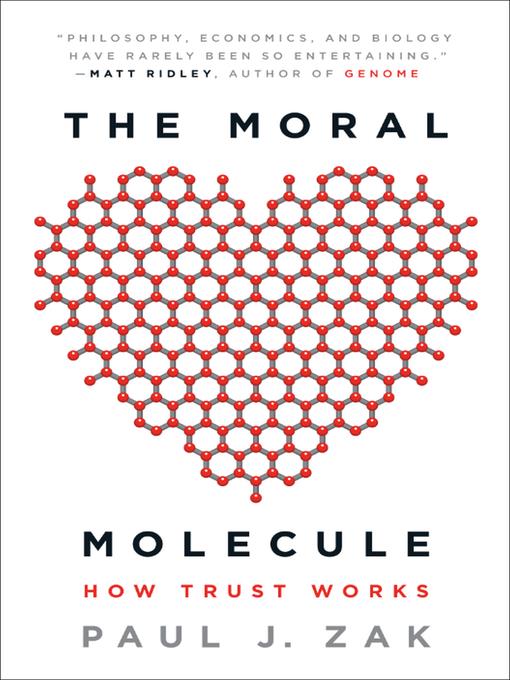
The Moral Molecule
The Source of Love and Prosperity
کتاب های مرتبط
- اطلاعات
- نقد و بررسی
- دیدگاه کاربران
نقد و بررسی

February 27, 2012
Is it possible to locate a single biological element that might explain why some people are good and others are evil? Economic psychologist and neuroscientist Zak (Claremont Graduate University) says “yes” in a book that is by turns stimulating and reductionist. Starting in 2001, he and his colleagues conducted experiments on men and women in various countries and economic circumstances, isolating a single chemical—oxytocin—as the key to moral behavior. Oxytocin is known primarily as a female hormone responsible for the peaceful attention that mothers give to newborns during breastfeeding. Testosterone blocks oxytocin, which Zak presents as explaining gender differences in cooperative behavior; he also explains why trauma victims have trouble connecting emotionally: oxytocin production is shut down, as it is from early childhood abuse or neglect. Through his experiments, Zak discovers that a simple sign of trust from one person can trigger a surge of oxytocin in someone else, eliciting trusting behavior in return. Zak admits that other factors play a role in fashioning morality. Even so, he demonstrates the intriguing possibility that oxytocin orchestrates the generous and caring behavior we all endorse as moral. Agent: Linda Loewenthal, David Black Literary Agency.

Starred review from April 1, 2012
Zak (Economic Psychology and Management/Claremont Graduate Univ.; Moral Markets: the Critical Role of Values in the Economy, 2008, etc.) explores a surprising link among neuroscience, morality and economic success. The author explains how an encounter with anthropologist Helen Fisher in 2000 transformed the direction of his work. He was dissatisfied with the notion that calculating rational self-interest was the basis for individual decision-making. Fisher suggested that he examine the role of brain chemistry in economic as well as intimate relationships--e.g., the way in which oxytocin (the "cuddle hormone") facilitates mother/child bonding at the time of birth and provides the basis for trust later in life. Although he was at first ridiculed by colleagues, Zak began a series of experiments based on the "Trust Game." The game has many variations, but basically all subjects are given $10 for participation and then divided into two groups. Group A gets the opportunity to give part of their money to someone in group B, with the understanding that the amount would be tripled. How much the original donor gives is based on his expectation of the extent to which it will be reciprocated. Zak added the twist of testing donors and recipients for oxytocin levels and found a high correlation. He believes his research to have demonstrated that oxytocin is "the key to moral behavior." Because it triggers the release of the neurotransmitters dopamine and serotonin, it creates a "motivational pathway" for empathy, intimate bonding and trusting social relationships that give people emotional satisfaction. This influences their economic decisions, a process the author calls a "physiological version of the Golden Rule." Explaining his use of cutting-edge research to undercut Gordon Gekko's infamous mantra ("Greed is good"), Zak is engaging, entertaining and profound.
COPYRIGHT(2012) Kirkus Reviews, ALL RIGHTS RESERVED.

























دیدگاه کاربران